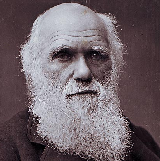Adam Smith type de personnalité MBTI
Personnalité
"Quel type de personnalité est Adam Smith? Adam Smith est un type de personnalité INTP dans MBTI, 5w6 - so/sp - 512 dans Enneagram, RCUEI dans Big 5, ILI dans Socionics."
LIE doesn't make sense,at least for INTPs.Here,one of text describing his purpose of marketing: ''For Smith, once goods produced as a result of the division of labor were obtained, they had to be marketed through the exchange. Smith stated that by nature, human beings seek to derive some benefit from our actions. In this sense, according to Smith, everyone who produces a good and gives it to another does so with the intention of doing something useful for it in return. In addition, Smith suggested that this gain may not bring any benefit, but each person will always try to obtain the greatest possible benefit. As a result of this, Smith stated, manufacturers will naturally try to offer the best finished and most useful products that are produced at the lowest possible price.'' ILI's social missions: Find bold ideas or inventions and make them work. For last,one of the ILI description: ''Does his work is accord with the established methods, slowly and scrupulously, going into all the specifications. Can be rigorous with details and meticulous to the point of pedantry. Professional activity and diligence are characteristic of him only within a formal system, where there is structure and regulation. Tries to have a set of necessary tools at his workplace and at home. Does not like to take anything on credit. In business activity, he is independent, self-sufficient and effective.''
Biographie
Adam Smith (16 June 1723 NS (5 June 1723 OS) – 17 July 1790) was a Scottish economist, philosopher and author as well as a moral philosopher, a pioneer of political economy and a key figure during the Scottish Enlightenment era. Smith is best known for two classic works: An Inquiry into the Nature and Causes of the Wealth of Nations (1776) and The Theory of Moral Sentiments (1759). The former, usually abbreviated as The Wealth of Nations, is considered his magnum opus and the first modern work of economics.
Personnalité correlate

Friedrich von Hayek

John Maynard Keynes

Hans-Hermann Hoppe

Milton Friedman

Thomas Sowell

Thomas Malthus

Ludwig von Mises

Ibn Khaldun







